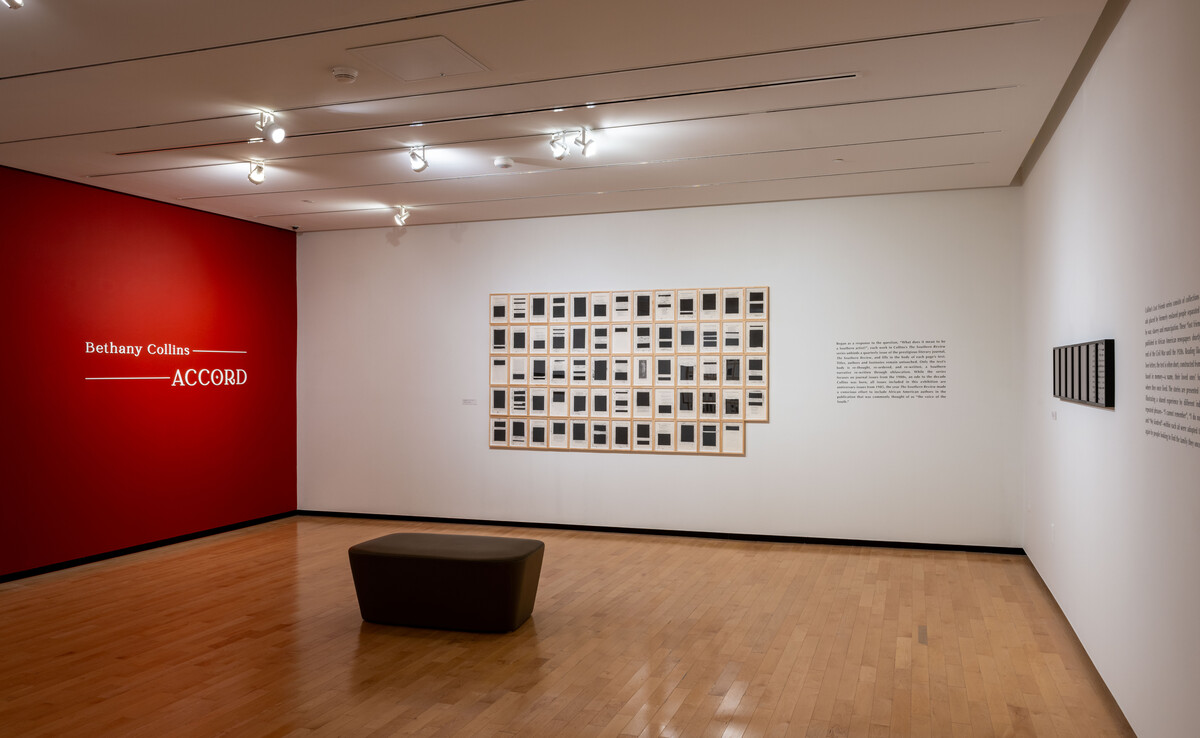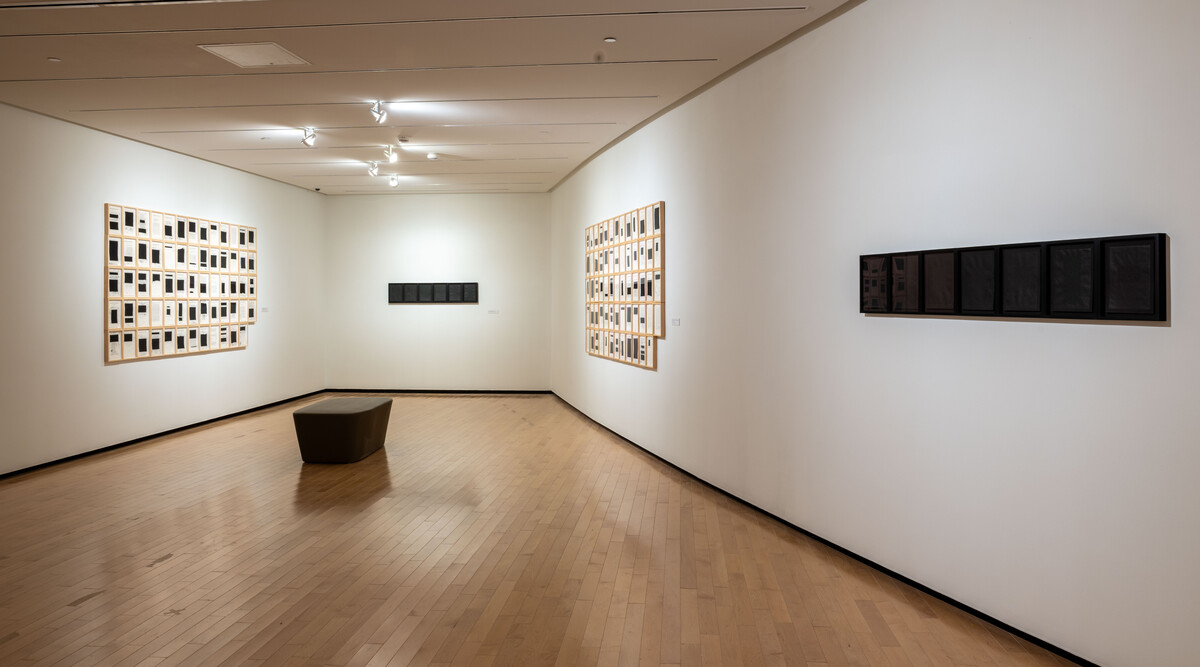
Born and raised in Montgomery, Alabama, artist Bethany Collins explores histories of the American South through sculpture, song, and the printed word. The third solo exhibition by Collins in her home state, Bethany Collins : Accord highlights key works from the artist’s studio of the past year while challenging the notion of a singular American history.
Beginning with 19th-century American ballads from the Library of Congress collection, Collins’ Rose Ballad series complicates the poetic romanticism of the original lyrics through tumultuous and foreboding charcoal drawings.
The centerpiece of the exhibition, however, are comprehensive installations of Collins’s The Southern Review series. Begun as a response to the question, “What does it mean to be a Southern artist?”, each work in the series unbinds a quarterly issue of the prestigious literary journal, The Southern Review, and fills in the body of each page’s text. Titles, authors and footnotes remain untouched. Only the text’s body is re-thought, re-ordered, and re-written, a Southern narrative re-written through obfuscation. While the series focuses on journal issues from the 1980s, an ode to the decade Collins was born, all issues included in this exhibition are anniversary issues from 1985, the year The Southern Review made a conscious effort to include African American authors in the publication that was commonly thought of as “the voice of the south.”

Finally, in a continued exploration of the American South, Collins’s Old Ship works are cast from handmade paper mixed with granite from a destroyed Confederate monument pulverized into dust—part of the artist’s first sculptural project to be presented by LAXART and the Museum of Contemporary Art, Los Angeles in 2025. Collaborating with Dieu Donné in Brooklyn, NY, Collins created these compositions from molds based on architectural details from the Old Ship AME Zion Church, the oldest Black church in the artist’s hometown of Montgomery, AL. Each cast pays homage to the building and congregation that hosted prominent Black speakers like Frederick Douglass, Senator Blanche K. Bruce, and Dr. Booker T. Washington.
Referencing a term from the Apostle Paul’s letter to the Philippians, to be of one accord indicates a unity ‘of one heart, of one mind,’ Collins’s recent works offer a critical view on how documents of unity can be read against the grain, resistant to a reconciled history, or single identity of any people at any time.
